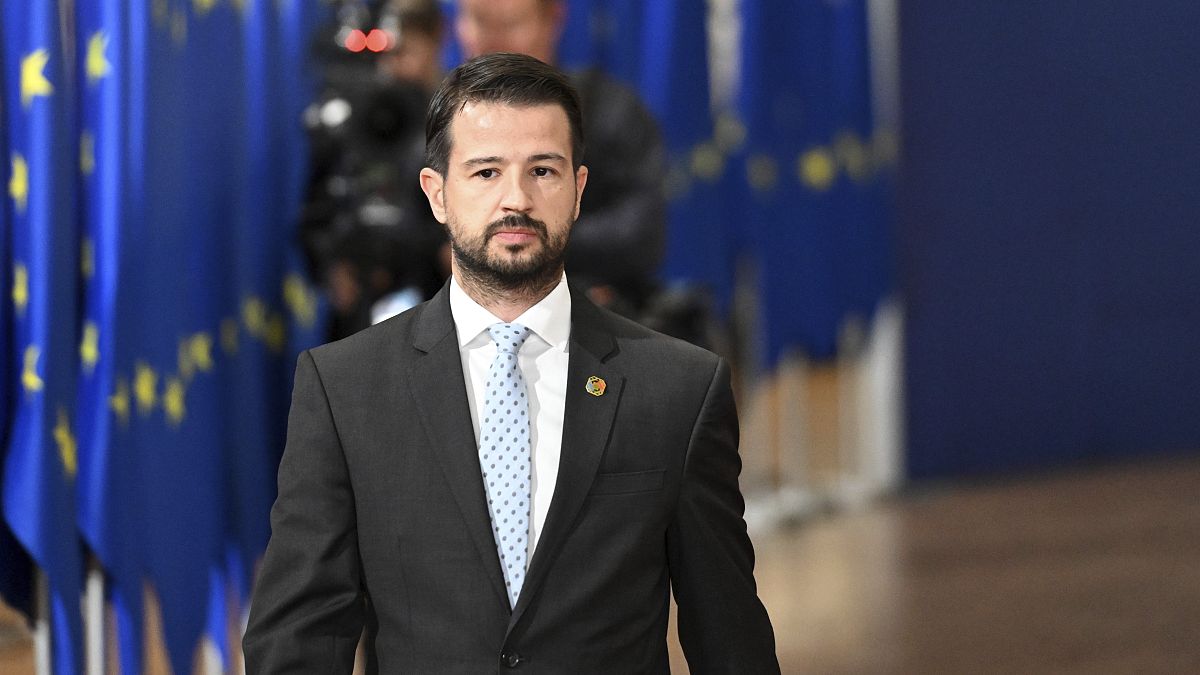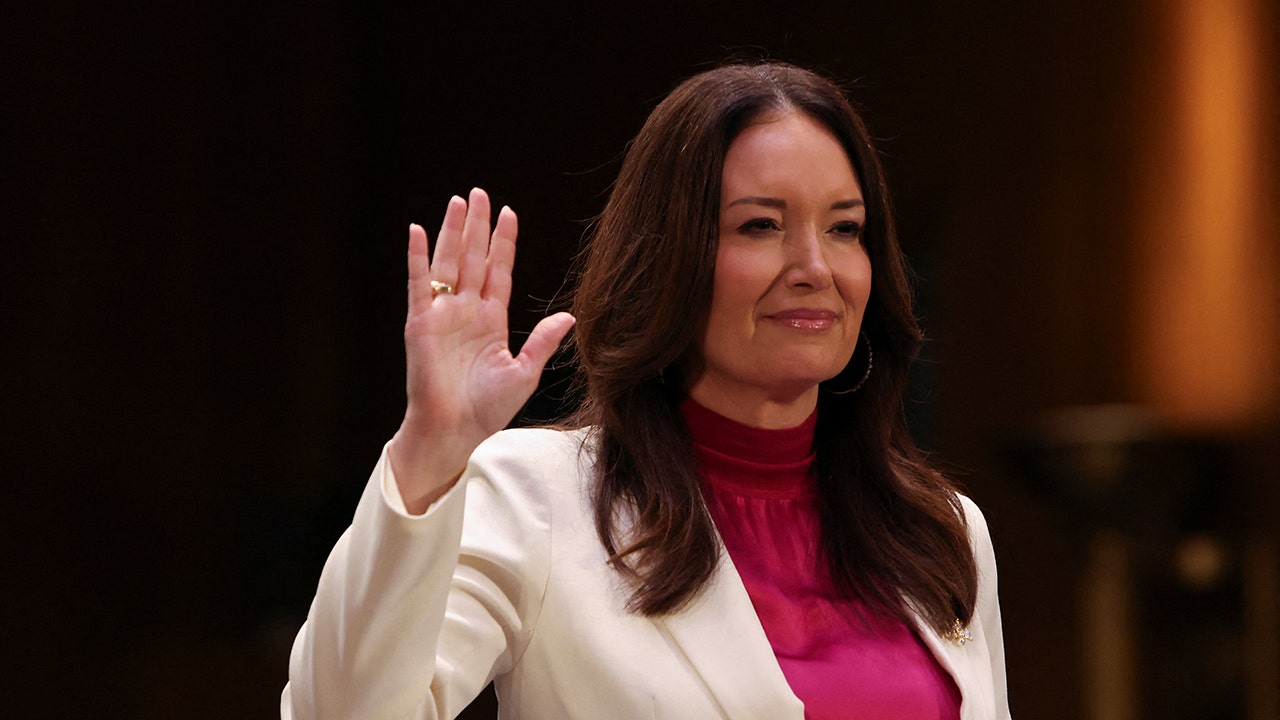Michigan
Michigan Marvels: Ocqueoc Falls, the largest waterfall in the Lower Peninsula

Michigan Marvels: Ocqueoc Falls
In autumn king salmon replace summer tourists at Ocqueoc Falls.
Presque Isle County’s Ocqueoc Falls is the largest and only named waterfall in Michigan’s Lower Peninsula and a popular attraction for tourists, especially swimmers, for its pool at the base of the tiered falls.
But in late autumn, when swimsuits have been exchanged for sweaters and jeans, visitors are treated to the aerial acrobatics of the Chinook salmon. The large fish, which typically weigh between 20-30 pounds but can grow much bigger, are easy to see in the clear water.
Chinook salmon, also known as king salmon, have marched their way up the river from Lake Huron, where they will find a suitable site, release their eggs and die. Such is the life of a salmon. But their repeated, high-flying attempts to get up and over Ocqueoc Falls leave camera-toting tourists in awe.
They circle and build speed before making an attempt to pass over the powerful falls. None were successful recently, sliding unceremoniously back into the pool, looking more exhausted with each attempt, and bearing more battle scars. They retreated into the slack water to catch their breath before starting anew. One can’t help but root for them.
The river is home to many species of fish and is a hidden gem to local fishermen. Large numbers of brook, rainbow and brown trout call the river home. There also is a strong spring run of steelhead, or rainbow trout. It is a designated Type 4 trout stream, meaning it is open for fishing year-round, but with seasonal restrictions on Brook and Brown trout and Atlantic salmon. Smallmouth bass and other species also can be caught.
The falls, just over 11 miles west of Rogers City, are the highlight of the 34.2 mile-long Ocqueoc River. They are not, however, as big as the numerous and more famous waterfalls dotting the Upper Peninsula.
In 2012, it became the nation’s first universally accessible waterfall with the Ocqueoc Falls Bicentennial Pathway. The path to the falls, a short distance from the parking lot, was designed to accommodate wheelchairs and other mobility devices.
There are more than 6 miles of hiking, biking and cross-country ski trails on four different loops at the park, with camping offered at the Ocqueoc Falls State Forest Campground, located just across the road.
And, of course, at just the right time, visitors will be treated to the aerial acrobatics of the Chinook.

Michigan
Is Michigan’s 24-hour abortion waiting period legal? Judge to decide in new trial underway

A trial has begun in a case that challenges Michigan abortion-related laws, including a 24-hour waiting period, with testimony focused on whether they place an undue burden on women seeking the procedure in the state.
The bench trial is taking place in Michigan’s Court of Claims in Detroit, where Northland Family Planning Center is asking Judge Sima Patel to rule unconstitutional three abortion regulations in state law — a mandatory 24-hour waiting period to terminate a pregnancy; requiring those seeking an abortion to obtain counseling and read information from the state before getting the procedure; and a ban on advanced-practice clinicians like physicians assistants and nurses performing an abortion.
The legality of the regulations came under scrutiny after Michigan voters approved a constitutional amendment in November 2022 creating a state-level right to have an abortion.
“Because I worked with lobbying legislators in Lansing, my understanding was (these regulations were) to make it more difficult for women to get abortions (and) to delay abortions,” said Renee Chelian, the executive director of Northland Family Planning Center. “My observation was (their intent was that) it would deter women and when they read the materials it would change their mind.”
The state, represented by fire-walled attorneys within Attorney General Dana Nessel’s office, said it intervened in the lawsuit after Nessel, the Michigan Department of Health and Human Services and the Department of Licensing and Regulatory Affairs signaled they would not defend the law against the challenge brought by Northland.
“The challenged statutory provisions do not unconstitutionally deny, burden, or infringe on an individual’s right to reproductive freedom under Michigan’s Constitution … and they do not discriminate in the protection or enforcement of this fundamental right,” the state’s attorneys said in their motion to intervene in the lawsuit.
Northland sued Nessel, LARA Director Marlon Brown and MDHHS Director Elizabeth Hertel. Nessel, Brown and Hertel said they would not defend the constitutionality of the laws.
Hertel said MDHHS did not have the legal authority to enforce the challenged laws, which is why the state intervened on behalf of the people of Michigan. Hertel said adding the state as a party was the only way for meaningful and complete relief for Northland.
The Reproductive Freedom For All Amendment requires the state not to “deny, burden, or infringe upon this freedom barring a compelling state interest to protect the health of the individual seeking care,” Patel wrote in her order granting a preliminary injunction in June.
“Additionally, any statute or regulation that does deny, burden, or infringe upon reproductive freedom must only do so in order to protect the patient’s health, achieve this goal by the least restrictive means, be consistent with accepted clinical standards of practice and evidence-based medicine, and not infringe upon an individual’s autonomous decision making.”
It appeared the laws Northland challenges, Patel wrote in her order, “are likely unconstitutional.” She will rule on the case after the trial, which is scheduled through Feb. 21.
Two people testified Thursday at the first day of the trial: Chelian and Dr. Charisse Loder, who works at the University of Michigan’s Women’s Clinic. None of the parties gave opening statements.
The law before the June preliminary injunction was granted required those pregnant to wait 24 hours to get an abortion after they received state-mandated informational materials. They either had to go to the clinic to get the materials or print them out themselves, both of which can cause hardship to people seeking an abortion, Chelian and Loder said.
Chelian and Loder said patients were often annoyed when they learned they could not have an abortion the day they made their appointment and would have to wait at least 24 hours for a new appointment.
“I observed people being frustrated, angry and upset that they had gotten a babysitter or a ride or taken a day off school or work, only to be turned away,” Chelian said. “They sometimes weren’t sure when they could come back, pushing them into another gestational limit or making it so they couldn’t get a medication abortion. … They couldn’t understand why the state had anything to do with this.”
The state argued that the 24-hour waiting period does not unduly burden access to abortion; instead it ensures people can exercise their right in an “informed, voluntary, and reflective manner.” Its attorneys asked Patel to affirm the laws and leave the question about any policy changes to the Legislature.
Appellate courts found that laws like the ones challenged by Northland did not constitute an undue burden on a woman’s right to reproductive freedom, the state wrote in its motion to intervene. The Michigan Court of Appeals found in 1992 that the objective of the laws was to ensure “a woman’s decision to obtain an abortion is informed, voluntary, and reflective.”
After the injunction, Chelian said employees at Northland spent less time on the phone talking about the state’s website with patients and can reduce waiting times for those who come in.
“It makes it much easier for them to get an appointment they want and have already made up their mind about,” Chelian said. “There’s no other medical procedure in this state where the patient is required to look at alternatives to the procedure they’re going to have.
“It’s biased, its unnecessary, it burdens the patient, there’s no reason for it. … It is not fair to make an assumption that they want something because you think it’s not a burden or someone else happens to think it’s not a burden.”
The delay and mandatory counseling were designed to pressure people into choosing to continue a pregnancy instead of having an abortion, the lawsuit said.
The lawsuit contended the law also forces patients to read irrelevant, misleading or stigmatizing information that may not apply to their circumstances for ending a pregnancy. Loder said the materials provided by the state are misleading, overplaying the risks of abortion and downplaying the risks of pregnancy.
“I don’t believe (the materials) help my patient make an autonomous decision,” Loder said.
The state argued that the informational materials also do not put an undue burden on abortion care, and is in keeping with the state’s interest to protect a patient’s health, as does the law limiting abortion providers to licensed physicians.
“Providing a patient with medically accurate information is not a burden to that patient, is it?” Assistant Attorney General Kendell Asbenson asked Loder.
“I don’t agree with that statement,” Loder said.
“It’s a burden to provide medically accurate information to a patient?” Asbenson said.
“I think it’s a burden to provide medically accurate information that is not relevant to the patient,” Loder said, saying it would not be helpful to provide Asbenson, a man, information about female reproductive health.
The trial continues Friday.
kberg@detroitnews.com
Michigan
Michigan infield set up for success ahead of season

It’s no secret that Michigan’s baseball team’s roster was stretched thin last season. With a short list of productive pitchers, the Wolverines were forced to make tough decisions concerning what role each athlete would fill including using some position players on the mound. But with a more complete bullpen featuring incoming freshmen and new pickups in the transfer portal, Michigan’s infield is set up for success.
“Because of the lack of depth on the roster, we’ve had to force guys into either playing or pitching, and sometimes that goes against the development path,” Wolverines’ coach Tracy Smith said Friday. “… We actually said, ‘You know what, we’ve got really good freshman infielders coming in. But boy, wouldn’t it be nice if we could go get some middle guys that have some experience to allow these guys to progress into the role at a pace that maybe is more appropriate for them.’ ”
Combining for 86 double plays last season, then-graduates Kyle Dernedde and Mack Timbrook anchored Michigan’s defense playing shortstop and second base, respectively. With their graduation from the program, the already-overextended roster was left in dire straits. However, with some savvy moves in the transfer portal and recruitment from high school, Smith acquired the talent to fill Dernedde and Timbrook’s shoes.
This new talent includes the pair of shortstops, graduate Benny Casillas and freshman Tyler Inge. Casillas helped Loyola Marymount best Michigan at shortstop last season, 9-1, in which he recorded two RBIs. In his last season with the Lions, Casillas started 50 of 52 games, recording only 10 errors. Inge, hailing from Brighton, Mich., holds his high school’s single season hit record
“Objectively, at the end of the day, Benny Casillas is going to start his shortstop for us at the open,” said Smith. “Benny had a very consistent fall. … I think Tyler’s got a bright, bright future ahead of him, not only in Michigan, but certainly at the next level.”
Michigan also acquired sophomore Colby Turner from San Diego State. Turner was a utility player for the Aztecs, playing outfield, first base and third base, but with the Wolverines, Turner will be primarily playing in the infield.
Even without the portal though, Michigan retained some of their talent in the infield. With projected starters at second and third base, junior Mitch Voit and senior Cole Caruso, respectively, provide needed continuity for a team with 11 transfer portal players and 11 freshmen.
“Obviously (Dernedde and Timbrook) are two unbelievable players, great defenders,” Caruso said Friday. “We did a good job filling the void with them. Benny at short has done a tremendous job playing there. … Same with second, we have Colby and Mitch as of right now, and they’ve both done a really good job filling that spot.”
Despite losing three of their infielders from last season, the Wolverines hit the recruiting trail both in the portal and out. With newfound depth, infielders will be able to play their positions and play them well.
Related articles
Michigan
Purdue basketball left the door open, and Michigan walked through and took the Big Ten lead

Purdue basketball coach Matt Painter on road loss to Michigan
Hear what Boilermakers coach Matt Painter said after Michigan came back to beat Purdue.
- Braden Smith got he wanted on the last possession of the game, but couldn’t create magic in Michigan.
- Yes, Purdue acknowledged the foul discrepancy, but turned criticism inward for a loss it could have avoided.
- Purdue’s big three was efficient, but it didn’t get enough help.
ANN ARBOR, Mich. — Purdue basketball’s Braden Smith asked for charity when Michigan’s Danny Wolf stepped to the charity stripe with a chance to ice a victory Tuesday night.
The Boilermakers trailed by two with six seconds remaining. They needed help, so what’s the harm in asking for some?
“I said, ‘Give us one, just one,’ and he did,” Smith said of Wolf missing the front end of his double-bonus opportunity. “And then I said ‘Uh oh, if he gives us another one I’m going to go down and make it.’”
Wolf obliged by missing the second as well. It left him a desperation running heave off one foot from 25 feet — one he said he made consistently shoot around. When it sailed wide of the rim, the Wolverines had a 75-73 victory and sole possession of the Big Ten Conference lead.
Whether that stands up as the decisive margin in the league championship race will be decided over a frantic final few weeks. Michigan State could also have jumped over the Boilermakers into a tie for first. Indiana, with a lame duck coach and a season long since having spiraled out of control, stunned the Spartans 71-67 in East Lansing.
Purdue could not make enough championship plays. If it summons a championship response, it may still control its own destiny.
Fortunes flip quickly in the Big Ten. Ask the Spartans, who 10 days earlier were undefeated in league play. They’ve lost three of four now and must play at Illinois this weekend before Purdue visits the Breslin Center on Tuesday.
This Boilermaker home-and-home with Michigan provided its own testimony.
Purdue ran the Wolverines out of Mackey Arena only 18 days earlier. It forced 22 turnovers — nearly four times as many as it committed. Held them to 6 of 29 3-point shooting and 0.90 points per possession. Built a 30-point lead with under four minutes to play and made a statement: The Big Ten championship still comes through West Lafayette.
The chances of those conditions repeating Tuesday seemed unlikely at best. Teams generally play better at home. Calls tend to go their way.
Home cooking? Perhaps. Ask around the Big Ten and you’ll find plenty of players who say they had their fill of that meal at Mackey Arena.
“That’s something you’ve got to live with,” Furst said. “That’s life on the road. We knew that coming in — and especially in a game like this, going against a team of this caliber.”
Trey Kaufman-Renn remains puzzled by the foul disparity. Smith too. They took a combined 40 shots and did not draw a single trip to the free throw line. (In Purdue’s six losses, Smith has attempted a total of six free throws — all against Ohio State, when he played only 30 minutes due to foul trouble. Go figure.)
The 10 fouls called against Kaufman-Renn and Caleb Furst mattered — more than keeping both out of the game for stretches, and eventually for good. They contributed to an accumulation, of which Michigan took full advantage. It went 8 for 8 in one-and-one situations — four in each half.
Purdue’s lone one-and-one chance came from freshman Raleigh Burgess. He came in with 16 free throw attempts over games which were decided by an average of 24.4 points. He went to the line with 58 seconds left Tuesday, trying to halve Michigan’s four-point lead.
He missed the front end, Ruben Jones scored a put-back dunk against the Kaufman-Renn and Furst-less front line, and Purdue faced a six-point hole with 39 seconds to play.
So yes, the fouls mattered. Yes, the Boilermakers grumbled about them, to a varying extent, both on and off the record.
The best reaction — the one which can still win them a Big Ten championship — was the amount of time they spent blaming the guys in black and gold instead of black and white.
Kaufman-Renn called himself out for two big mistakes. He failed to rotate and get vertical on a late defensive assignment. Then he made an awkward pass in the paint which resulted in a turnover. He was called for his fifth foul trying to rebound on the other end.
“I don’t think the game was lost from the officiating,” Kaufman-Renn said. “… We had our chances.”
Kaufman-Renn, Smith and Fletcher Loyer combined to score 61 points on 51 field goal attempts. Exactly the high-volume efficiency Painter wants and expects from his stars.
The other six combined for 12 points on 4-of-18 shooting with no assists and five turnovers. Michigan’s bench outscored Purdue’s 21-0. In a two-point game with the lead in the Big Ten on the line, those numbers are significant, too.
Purdue missed a handful of chances at the rim. It missed wide-open 3s in rhythm. It would love to have the final few minutes of the first half back, when Kaufman-Renn sat with two fouls and Michigan cut what had been an 11-point deficit down to two.
Back on Jan. 24 at Mackey Arena, the Boilermakers fairly quickly eliminated any hope Michigan might have had of capitalizing down the stretch. Tuesday night on the road, they left the Wolverines exactly enough rope to pull themselves back into the lead and keep it.
-

 Politics1 week ago
Politics1 week agoTulsi Gabbard confirmation fate to be tested with key committee vote
-

 Technology1 week ago
Technology1 week agoTrump’s first 100 days: all the news affecting the tech industry
-

 News1 week ago
News1 week ago'Beyond betrayal.' Venezuelans in Florida are angry at Trump immigration policy
-

 World1 week ago
World1 week agoMontenegro pursues values-driven EU enlargement process
-

 World1 week ago
World1 week agoTrump says US will ‘own’ Gaza in redevelopment plan
-

 News1 week ago
News1 week agoCongressional Democrats to Trump: Changes can't be done in secrecy
-

 Politics1 week ago
Politics1 week agoCIA offering buyouts to its entire workforce: report
-

 Education1 week ago
Education1 week agoTrump’s Orders Could Drain Millions From Universities, but Few Protest Openly















